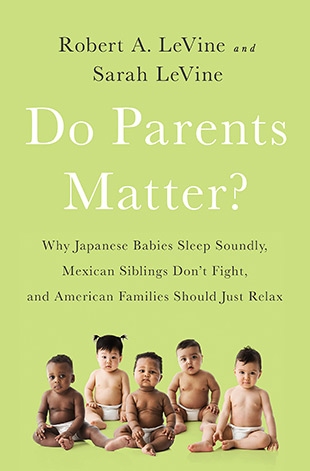Robert A. LeVine and Sarah LeVine have collaborated for 47 years and have written two previous books together — Child Care and Culture and Literacy and Mothering. In this very satisfying book, they present the findings of their global study of the ways in which parents interact with their children in different cultures. They note that middle-class American fathers and mothers are criticized for "helicopter parenting" which has resulted in children who feel entitled and act disrespectfully to all.
The LeVines have been probing child-rearing in such places as Nigeria, Zambia, Nepal, Mexico, and Venezuela. They share a variety of practices and strategies which offer an alternative to effort-intensive parent style of American parents that lead to caution and anti-social behaviors among their children. For example, a major goal of a Japanese mother is to instill empathy in her children. This leads boys and girls to become more sensitive to what they have in common with others and to reject harming or dominating others.
The authors manage to convey a lot of material on child rearing in chapters on pregnancy and birth, infant and child care, training toddlers, childhood, and precocious children. Much can be learned from cultures where the extended family serves as an eclectic and wise cooperative group able to open the hearts and minds of the young to diversity and wide variety of human interaction and understanding.
